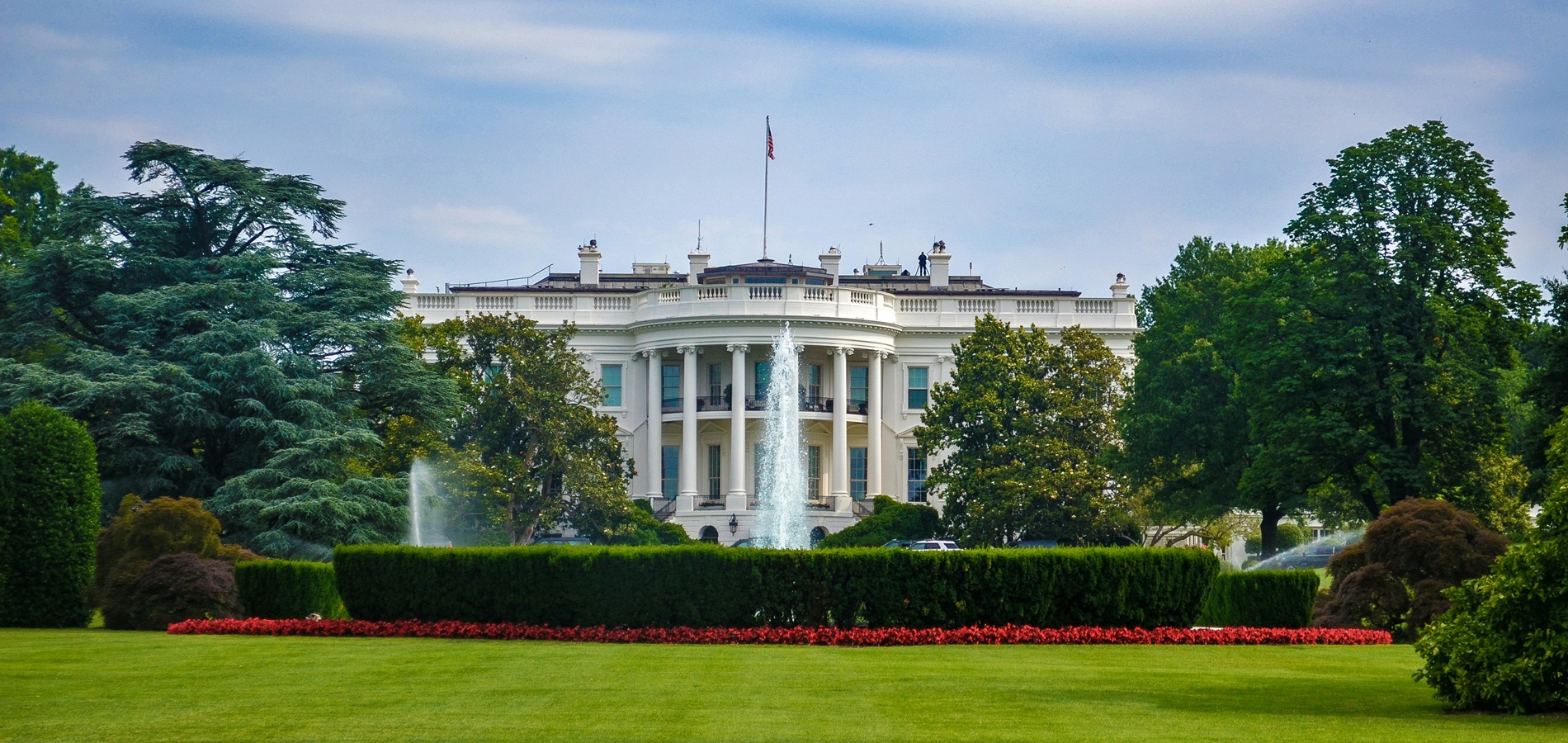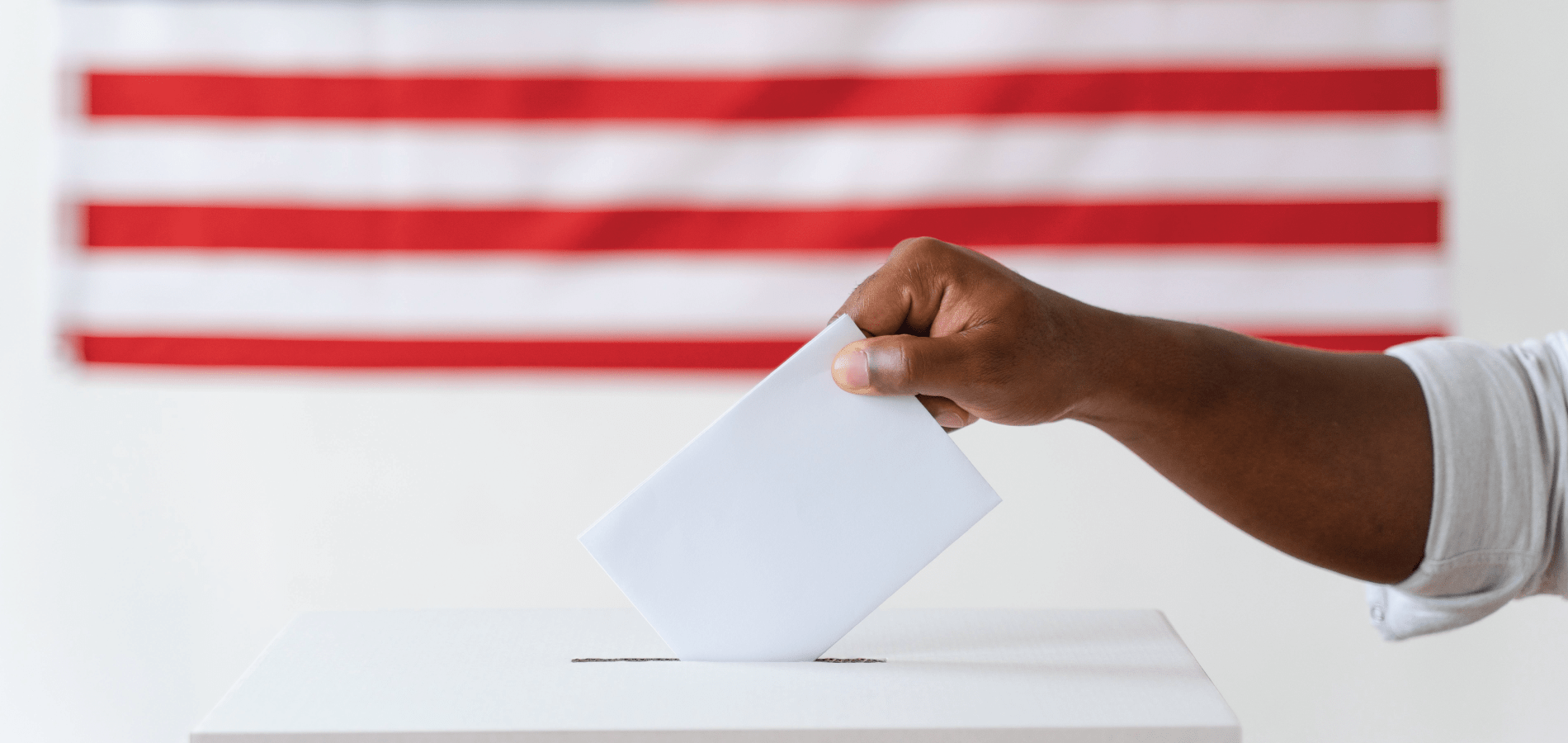The 2020 presidential election has proven to be the most debated, divisive, and important election of our time. No matter which side you are leaning towards, there are key topics that each voter should be educated on when casting their vote, either by mail or in-person in the next 2 weeks. Let’s take a look at where each candidate stands on 5 key issues, and how to research these topics using HeinOnline.
1. COVID-19
Dedicated HeinOnline Database: COVID-19 in America: Response, Issues and Law
One of the hottest topics on the table for the 2020 election is the current global pandemic, which has greatly impacted both our society’s physical health and our nation’s economic status. This virus has claimed more than 215,000 deaths to date in America and put the healthcare system at the forefront of the presidential election. Our candidates have opposing views on how they will handle this pandemic.
In the past few months, Trump has promised a rapid coronavirus vaccine and made it clear he opposes a national requirement for mask-wearing. He supported reopening states to start the economy. Trump signed the largest emergency aid package in U.S. history in response to the virus’s economic impact. He also cut funding for the World Health Organization. Trump opposes the Affordable Care Act (ACA) and vows to repeal it, specifically the part that requires insurers to cover preexisting conditions.
Biden has said he would reverse many of Trump’s actions on the coronavirus if elected. He has a plan to provide free testing, equitable and effective distribution of a potential vaccine, and pledges to put scientists at the forefront of the virus. He is in support of a nation-wide mask mandate if needed. Finally, Biden would reinstate the aspects of the ACA that have been repealed and expand coverage to more Americans.
To research this topic further, check out one of our newest databases, COVID-19 in America: Response, Issues, and Law. With this database, users can explore factual information about how COVID-19 has impacted public health, economics, society, and the world.
2. Gun Rights and Gun Control
Dedicated HeinOnline Database: Gun Regulation and Legislation in America
Gun regulation has been a hot topic for years, with a division of opinions between Democrats and Republicans. School shootings have continued to rise over the years and each tragedy restarts the cycle of arguments over gun control. Democrats in Congress push for tougher gun laws, while Republicans stand by the Second Amendment.
The National Rifle Association (NRA) spent more than $30 million on Trump’s campaign run in 2016 and is endorsing him for a second time. Trump has touted on Twitter that he will protect the Second Amendment. While in office, Trump reversed an Obama-era rule that restricted gun purchases by people who required help managing government benefits and who had mental impairment or depression. In response to the Parkland shooting in 2018, Trump suggested arming school teachers as a solution. Alternatively, after the Las Vegas shooting in 2017, he banned bump stocks, which make semi-automatic rifles fire continuously.
Joe Biden has stated that he would ban assault weapons if he were elected. He supports universal background checks and would push for a federal gun buyback program to take weapons off the street. Biden has been an avid supporter of Everytown for Gun Safety, one of the NRA’s major adversaries.
Check out HeinOnline’s Gun Regulation and Legislation in America database to research more on this topic. This resource brings together periodicals, legislative histories, and government documents on this timely topic.
3. Immigration Reform
Dedicated HeinOnline Database: Immigration Law & Policy in America
Each administration has struggled to handle the issue of immigration reform in America. Unprecedented numbers of migrant families are arriving and requesting asylum. Pictures of overcrowded detention facilities and reports of poor conditions within have sparked debates on the issue.
Trump’s 2016 campaign was largely based on the promise that he would build a wall between U.S. and Mexico. In March 2017, he signed Executive Order 13769, which lowered the number of refugees admitted into the U.S. and suspended the U.S. Refugee Admissions Program for 120 days. This was blocked by various courts and later superseded by Executive Order 13780, which limited travel to the U.S. for refugees who did not possess a visa, or valid travel documentation. He later implemented a “zero-tolerance” policy to deter illegal immigration. Under the policy, children were separated from parents or guardians with whom they had entered the U.S. He also tried to end Deferred Action for Childhood Arrivals (DACA), but the Supreme Court ruled he could not immediately end the policy. Furthermore, Trump has made his stance on immigration clear, indicating that illegal immigrants will take jobs from Americans.
Biden wants to address the root issues that are causing migrants to flee Central American countries. He has vowed to reverse the Trump administration’s policies that separate parents from their children, restore asylum laws to protect anyone facing persecution, and protect the “dreamers” by reinstating the DACA program. Biden also says he will make investments in improving screening infrastructure at ports of entry. Even more, he pledges to limit local law enforcement cooperation with federal immigration authorities.
To learn more about immigration issues, check out HeinOnline’s Immigration Law & Policy in the U.S. database. This database is a compilation of the most important historical documents and legislation related to immigration in the United States, along with current hearings, debates, and other recent developments in immigration law.
4. Trade and Tariffs
Dedicated HeinOnline Database: U.S. International Trade Library
Trade policy and tariffs have and will continue to play a vital role in the U.S. economy. Arguments over who should be taxed, how much, and support or opposition of free trade are just some of the issues surrounding this key issue at hand. Let’s see where our candidates stand on these issues.
Earlier this year, Trump signed a partial trade agreement with China, a step that would hopefully end the two-year-long trade battle. He signed the 2017 tax law that lowered taxes on businesses and individuals while increasing budget deficits. Trump also said he would provide a tax credit for individual and corporate donations to organizations that sponsor scholarships for education, as well as keep the top 37% tax rate where it is.
Biden said he would be open to rejoining the Trans-Pacific Partnership (TTP) but would rework it to better serve American workers. He vows to take enforcement actions against China or any other country seeking to undercut American manufacturing through unfair practices, as well as support independent trade unions in the U.S. Biden has proposed big tax increases on corporations and anyone with taxable income above $400,000 to pay for social programs. He plans on increasing the Child Tax Credit (CTC) to $8,000; it currently stands at $2,000.
Explore this topic with HeinOnline’s U.S. International Trade Library, which includes a current and historical archive of U.S. International trade documents, including USITC publications, legislative histories, scholarly articles, and much more.
5. Abortion Rights
Dedicated HeinOnline Database: Women and the Law (Peggy)
Since Roe v. Wade legalized abortion in 1973, it has been hotly debated. The majority of this debate circles the Supreme Court, who had to decide how far states can go in restricting abortions. So far in his term, Trump has appointed Justices Neil Gorsuch and Brett Kavanagh, both known to be on the more conservative side of the ideological spectrum. With the passing of Justice Ruth Bader Ginsburg, Trump has nominated Amy Coney Barrett, hoping to cement a 6-3 conservative majority. Let’s explore our presidential candidates’ views on the controversial topic of abortion.
Although stating he was pro-choice back in 1999, Trump has since changed his stance to pro-life. He opposes Roe v. Wade and supports the Hyde Amendment, which prevents Medicaid from covering abortions in most circumstances. He is the first sitting president to speak at the March for Life. Trump implemented a “gag rule” that bars federally funded health care providers in the Title X family planning program from referring patients for abortions. The American Medical Association (AMA) is now asking the Supreme Court to block this ruling, a request this is still pending.
Biden, whose abortion views have also changed over time, has stated he would protect abortion rights if Roe v. Wade were ever to be overturned by the Supreme Court. He also has reversed his previous support for the Hyde Amendment. Furthermore, Biden has promised to protect patients who rely on federal health care programs by stopping efforts to defund Planned Parenthood.
Want to learn about women’s abortion rights over the decades? Check out HeinOnline’s Women and the Law (Peggy) database, a convenient platform for users to research the progression of women’s roles and rights in society over the past 200 years.
Don’t Miss Out
To keep up with current events and how to research hot topics in HeinOnline, be sure to subscribe to our blog! With a click of a button, you can have material just like this delivered directly to your inbox. We promise you won’t be disappointed.



